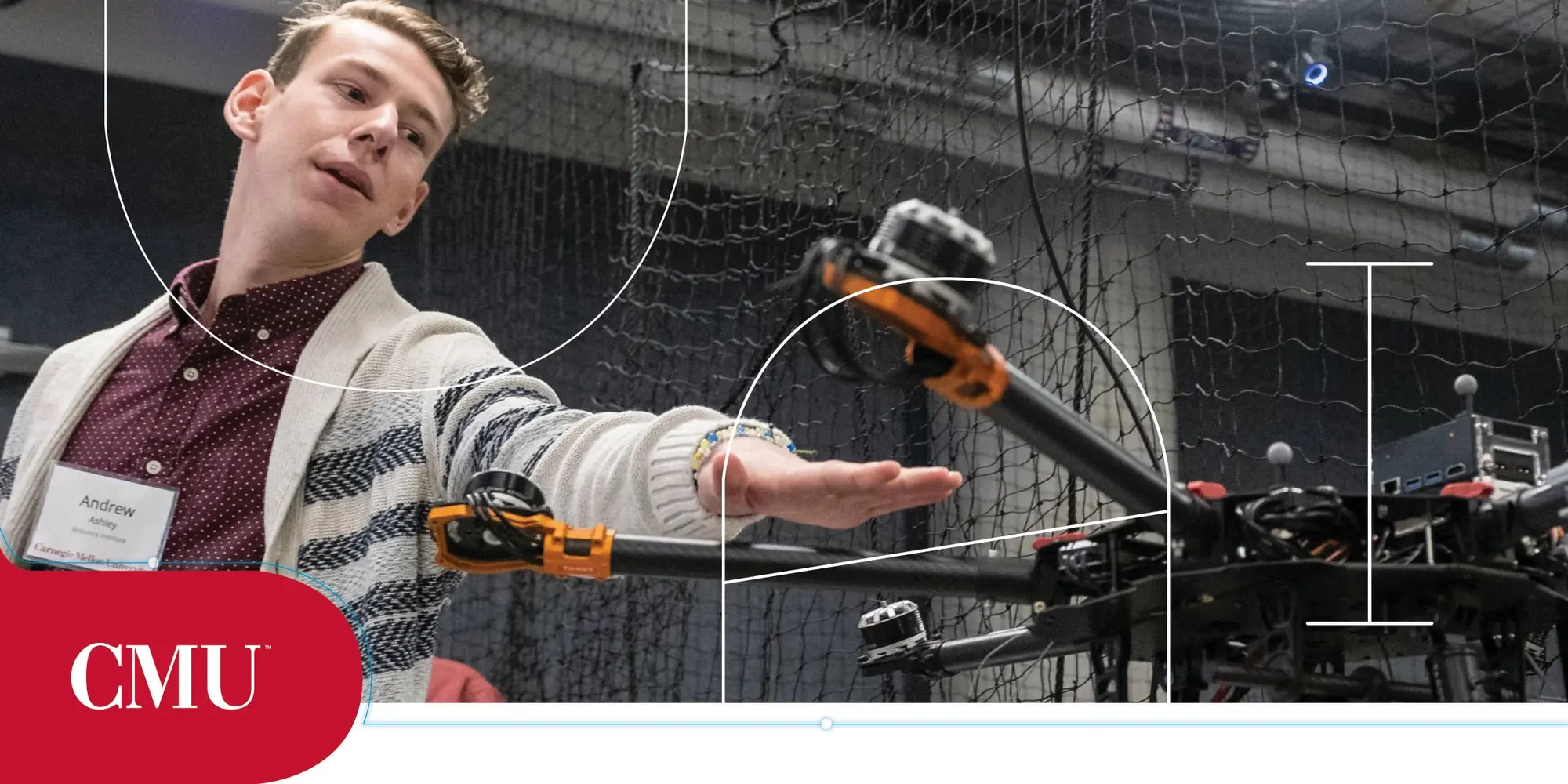College of Engineering
College of Fine Arts
The College of Fine Arts(opens in new window) explores AI through research and creative practice(opens in new window). Projects are naturally interdisciplinary and may employ machine learning, deep-learning systems, emerging technologies, generative imagery and ethics. As a creative institution, we play an important role in leading society toward meaningful solutions for our most relevant problems.
Dietrich College of Humanities and Social Sciences
At the Dietrich College of Humanities and Social Sciences(opens in new window), we are united by a common goal: confronting and addressing society's most complex challenges. Every department in our college touches on AI from folding this new technology into approaches that benefit society to educating our students to be prepared for careers of the future.
Heinz College of Information Systems and Public Policy
Many Heinz College master's programs(opens in new window) incorporate AI as one of several technological methods used to drive evidence-based decision making. Heinz College students often employ AI to solve problems for real-world clients during their team-based Capstone projects, giving them hands-on experience in the use of AI before they graduate.
Mellon College of Science
The Mellon College of Science(opens in new window) is working to ensure that students are better prepared for careers as leaders in the next generation of scientists and researchers. As part of that commitment, graduate programs focus on building skills not only to analyze enormous quantities of scientific data in foundational sciences but also to embrace innovation and adapt their training and knowledge to serendipitous opportunities and future technologies.
Graduate Degrees:
Students can explore courses like:
- Welcome to the Future Lab - Science in the Cloud
- Future Lab - DNA Science in the Cloud
- Large-Scale Computing in Data Science
- Computational Modeling, Statistical Analysis and Machine Learning in Science
- Neural Networks & Deep Learning in Science
School of Computer Science
AI is at the heart of all that we do in the School of Computer Science(opens in new window), and almost all of our programs touch AI in some way. Specific AI offerings include:
Because SCS is rooted in AI, we recommend you see the full listing of School of Computer Science programs(opens in new window).
Tepper School of Business
The Tepper School prepares tomorrow's business leaders to be innovative thinkers who thrive where data and humanity connect in The Intelligent FutureSM(opens in new window). Empowered with the latest technology such as AI, our students apply human intelligence — analytical, creative, emotional — to unleash data's insights and lead their teams toward smarter decisions.
All Tepper School programs live at the intersection of business and technology, particularly these:
Students can explore courses like:
- AI Applications in Business
- Applied Business AI
- Design of Artificial Intelligence Products
- Ethics and AI
- Machine Learning for Business Applications
- Machine Learning Fundamentals
- Optimization for Prescriptive Analytics
- Technology and the Future of Work

